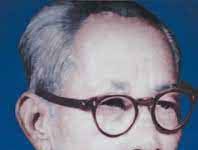King Talal | Biography
King Talal
King Talal of Jordan (1909-1972) was the King of Jordan from 1951 to 1952. He was born in Mecca, in what is now Saudi Arabia, and was the son of Sharif Hussein bin Ali, who was the Grand Sharif of the Hashemite Kingdom of Hejaz and a direct descendant of the Prophet Muhammad.
King Talal was educated in Istanbul, Turkey and later studied law in Switzerland. In 1946, he was appointed as a regent for his nephew King Abdullah I, who was assassinated in 1951. Following the assassination, King Talal was proclaimed king of Jordan.
During his short reign, King Talal worked to modernize and liberalize Jordan’s political and social systems. He established a constitutional monarchy and a parliamentary system and introduced progressive reforms such as granting women the right to vote and creating a more democratic political system. He also sought to improve relations between Jordan and its neighboring countries and to promote regional stability.
However, King Talal’s reign was cut short by a mental illness that made it difficult for him to continue to rule effectively. In 1952, he was forced to abdicate the throne in favor of his son, King Hussein. 0 0 0.
Sources:
“Talal of Jordan.” Encyclopædia Britannica, Encyclopædia Britannica, Inc., www.britannica.com/biography/Talal-king-of-Jordan.
“King of Jordan.” Wikipedia, Wikimedia Foundation, 14 Feb. 2023.
“K Talal bin Abdullah.” Jordan Embassy, Embassy of the Hashemite Kingdom of Jordan. ***
N.B. The article originally belongs to the book ‘Brief Biographies of Eminent Monarchs‘ by Menonim Menonimus.
Books of Biography by M. Menonimus:
- The World Writers-Brief Biographies
- Introduction to World Writers
- Introduction to World Personalities
- Love of Reputed Persons
- Brief Biographies of Ancient Thinkers and Writers..
Additional Searches:











